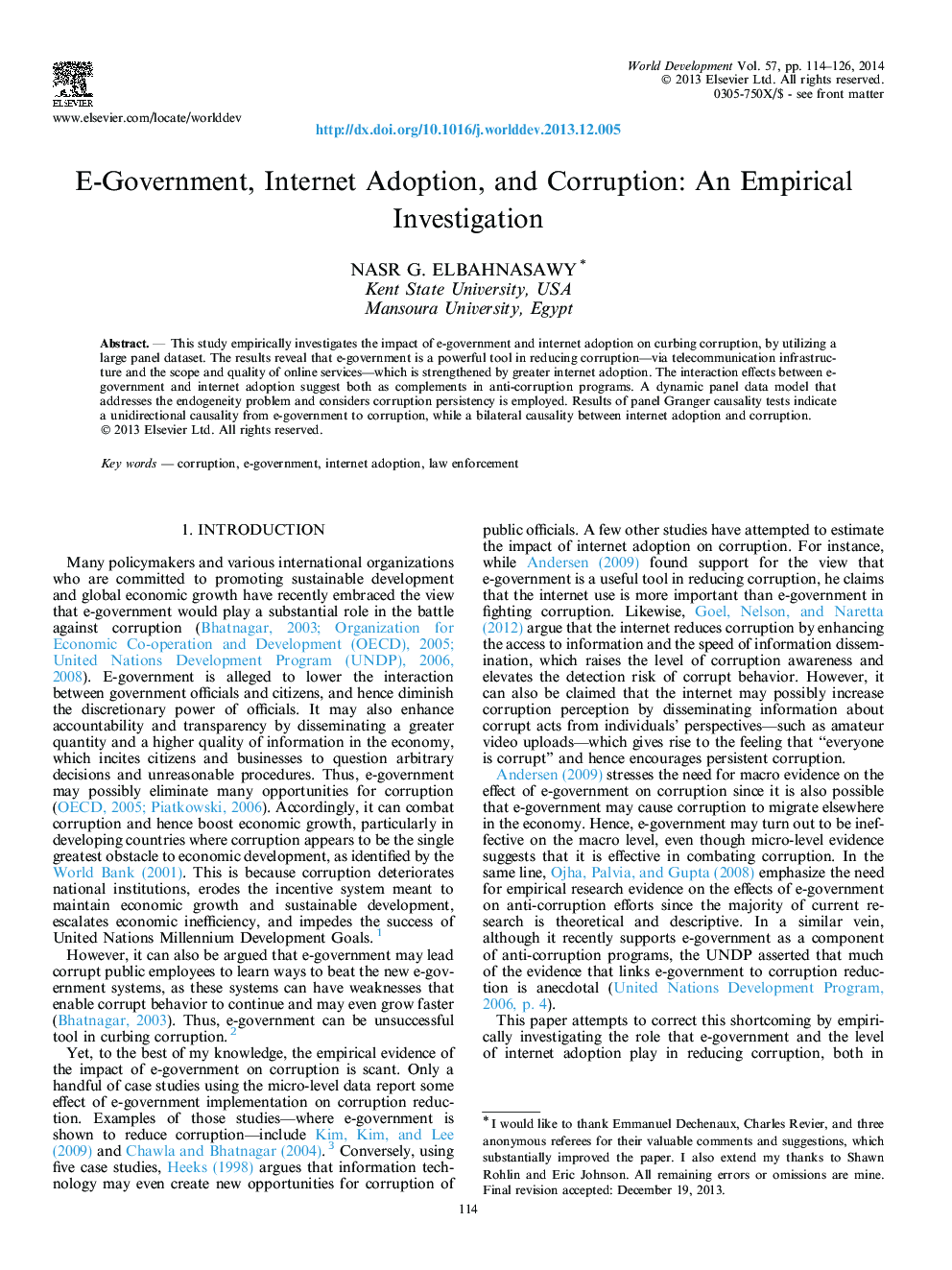| Article ID | Journal | Published Year | Pages | File Type |
|---|---|---|---|---|
| 991742 | World Development | 2014 | 13 Pages |
This study empirically investigates the impact of e-government and internet adoption on curbing corruption, by utilizing a large panel dataset. The results reveal that e-government is a powerful tool in reducing corruption—via telecommunication infrastructure and the scope and quality of online services—which is strengthened by greater internet adoption. The interaction effects between e-government and internet adoption suggest both as complements in anti-corruption programs. A dynamic panel data model that addresses the endogeneity problem and considers corruption persistency is employed. Results of panel Granger causality tests indicate a unidirectional causality from e-government to corruption, while a bilateral causality between internet adoption and corruption.
